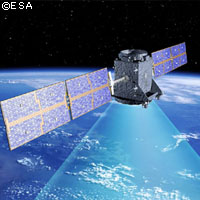Parliament committee backs public funding for Galileo
MEPs from the European Parliament's Security and Defence subcommittee debated Europe's satellite navigation project Galileo on 5 June, broadly agreeing that public funding now looks to be the best financing option. Galileo was to be the EU's first major foray into public-private partnerships. But the project came up against a major setback in May, when the companies making up the Galileo consortium were unable to agree on how to share the financial risks involved in the project. The European Commission immediately put forward a communication outlining six different scenarios for taking the project forward. The Commission's favoured option, and now that of the Parliament's Security and Defence subcommittee, is to fill the funding gap with public money. Ultimately funding for the project was to come from the public sector anyway, with the private sector money acting as a loan. But €2.4 billion is a lot of extra money to find, and the proposal must first be approved by the Council, as well as the Parliament as a whole. Etelka Barsi-Pataki is the Parliament's former rapporteur on Galileo. During the debate, she emphasised that Galileo remains of strategic importance, and that the Parliament does not question this. 'What we do question is whether the right type of financing has been chosen to undertake it,' she said. Current rapporteur Norbert Glante also said that now is not the time for hesitation over the importance of Galileo for Europe. 'We could buy GPS [the current US version of satellite navigation] off the shelf, or weapons systems of the shelf, but our research and development capabilities would suffer,' he said. Mr Glante also emphasised that Galileo's downstream industries, which intend to use the technology to offer various services to consumers, must be given reliable dates for the completion of the project. MEPs also discussed the recent adoption by the European Space Council of the European Space Policy. Questions raised by MEPs addressed whether or not the space policy will also have a role to play in military operations involving European armed forces, and whether Europe's space policy is intended to be technical, or political. Michael Praet, Head of the European Space Agency's Brussels office answered: 'space technology is neither military nor civil by definition - it is politics, not technology that decides the way in which it is used.' He explained that Europe's space effort, including that of individual Member States, is around one-sixth of that of the US. 'I don't know how long we can remain competitive under such pressure [...]. If you don't have space in your tool basket, you will be relegated to the second tier in global competition: in military, economic and research terms,' he warned.



